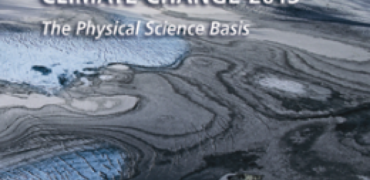Human influence on the climate system is clear. This is evident in most regions of the globe, a new assessment by the Intergovernmental Panel on Climate Change (IPCC) concludes.
Background
The IPCC is the scientific body under the auspices of the United Nations (UN). It reviews and assesses the most recent scientific, technical and socio-economic information produced worldwide relevant to the understanding of climate change. It does not conduct any research, nor does it monitor climate-related data or parameters. Thousands of scientists from all over the world contribute to the work of the IPCC voluntarily. The review is an essential part of the IPCC process to ensure an objective and complete assessment of current information. IPCC aims to reflect a range of views and expertise. The organization periodically releases a scientific report about the state of climate change in the world. Its 5th Report has just been released.
Findings
Human influence has likely been the dominant cause of the observed warming since the mid-20th century. The evidence for this has grown, thanks to more and better observations, an improved understanding of the climate system response and improved climate models.
Warming in the climate system is unequivocal and since 1950 many changes have been observed throughout the climate system that are unprecedented over decades to millennia. Each of the last three decades has been successively warmer at the Earth’s surface than any preceding decade since 1850.
According to the IPCC “Observations of changes in the climate system are based on multiple lines of independent evidence. Our assessment of the science finds that the atmosphere and ocean have warmed, the amount of snow and ice has diminished, the global mean sea level has risen and the concentrations of greenhouse gases have increased”
Global surface temperature change for the end of the 21st century is projected to be likely to exceed 1.5°C relative to 1850 to 1900 in all. Still, the lowest scenario considered, and expected to exceed 2°C for the two high scenarios.
Implications for Benin
This report again highlights the great responsibility of man in climate change. Even if Benin is not a country regarded as an emitter of greenhouse gases, efforts must be made to reduce our carbon footprint in different sectors from transportation to energy through agriculture. ACED recently launched an initiative for the reduction of greenhouse gas emissions from the water hyacinth in its natural habitat by its valuation in compost.



